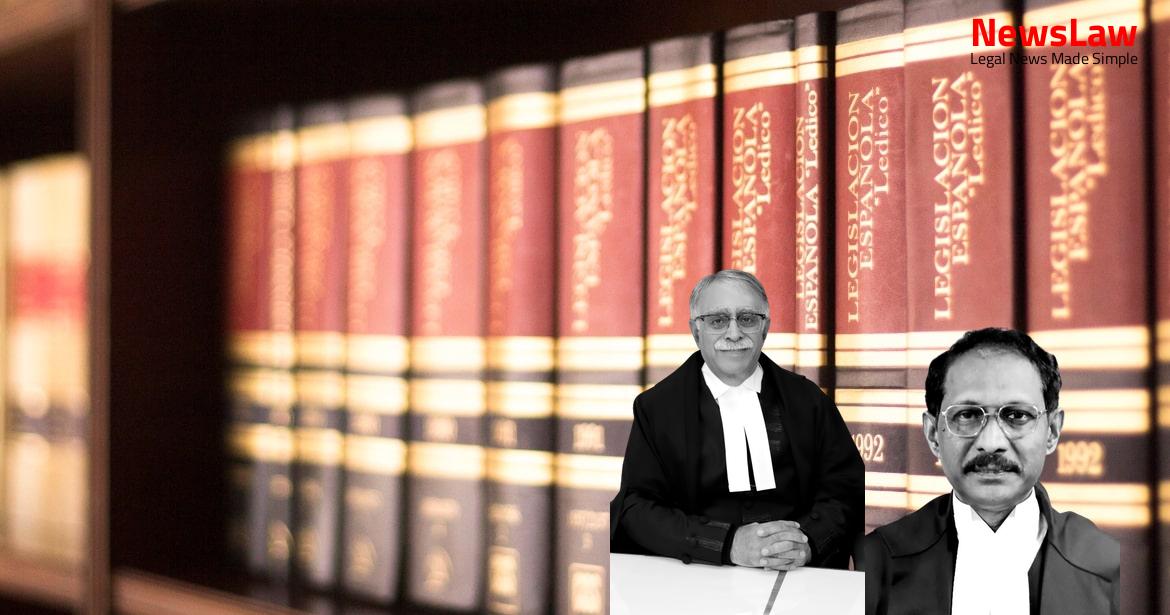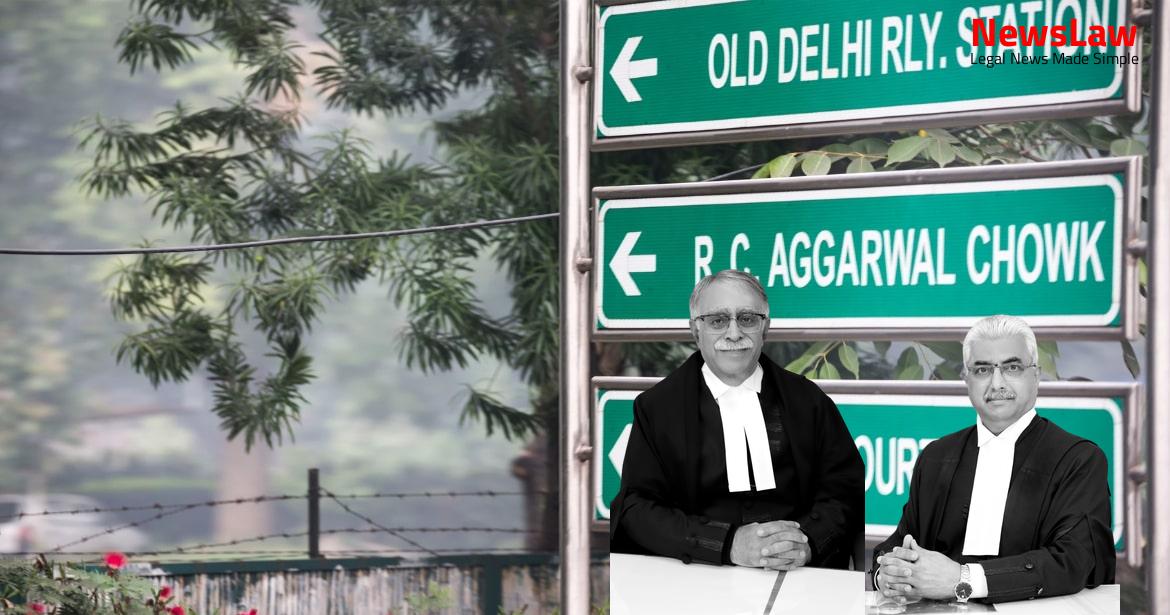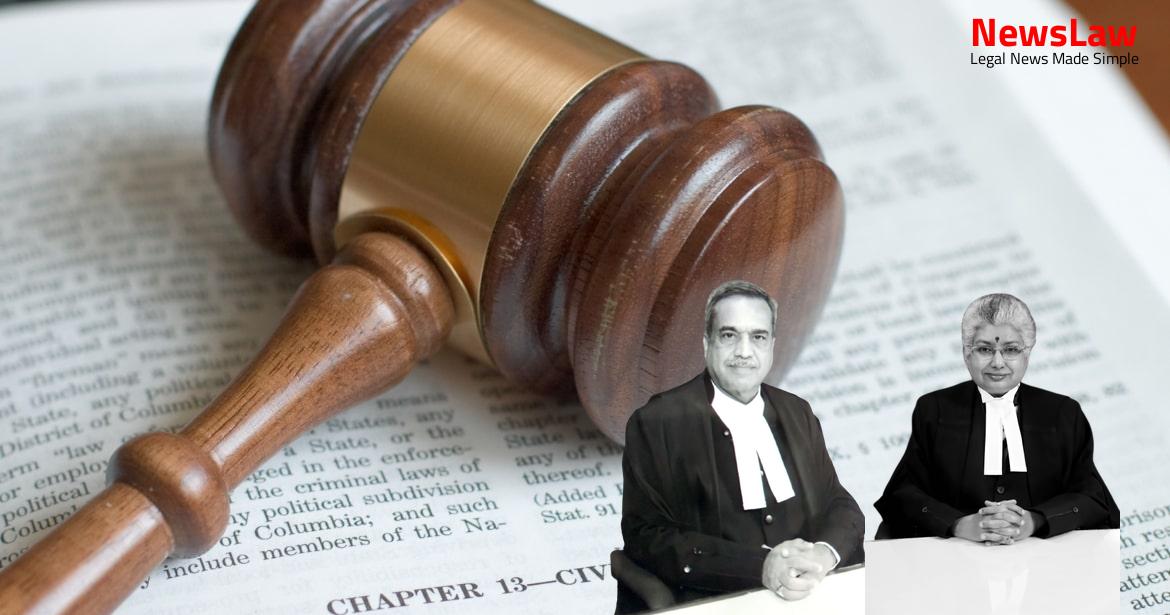In a significant ruling by the Supreme Court of India, a landmark judgement was delivered regarding a woman’s property rights in a case involving stridhan. The case highlighted the absolute ownership rights of women over their property, reaffirming principles outlined in authoritative texts like Maine’s Treatise on Hindu Law and Mulla’s Hindu Law. This judgement sets a precedent for future cases involving property disputes and emphasizes the importance of upholding women’s rights in matters of inheritance and ownership.
Facts
- The complainant lodged FIR No.32 of 2021 on January 15, 2021, under Section 406 IPC regarding the return of jewelry given to his daughter at the time of her marriage but entrusted to her in-laws.
- The daughter got remarried in the U.S.A. in May 2018, closing all issues arising from the previous marriage.
- The divorce between the daughter and son-in-law was granted by mutual consent in February 2016.
- Despite requests, the articles entrusted to the in-laws were not returned.
- The High Court refused to quash proceedings under Section 406 IPC and Section 6 of the Dowry Prohibition Act, leading to the present appeal.
- The High Court examined the allegations in the charge-sheet
- The Court found the allegations to be triable
- The case will proceed for trial based on the prima facie findings
Also Read: False Affidavit Allegations: Upholding Justice in the High Court of Uttarakhand
Issue
- The main issue in this case is whether the father had the right to file the FIR despite delay and laches, considering the matter non-maintainable.
- The question also pertains to whether the High Court was justified in not using its inherent power to quash the proceedings under Cr.P.C. 6.
- The dispute primarily revolves around the father’s claim over the gifts (stridhan) he gave to his daughter at her marriage.
- According to established legal principles, a woman holds absolute rights over her property, including stridhan.
- Court references such as Pratibha Rani v. Suraj Kumar and authoritative texts like Maine’s Treatise on Hindu Law and Mulla’s Hindu Law clarify the nature of stridhan and the woman’s ownership rights.
- Important characteristics and types of stridhan gifts have been outlined in various sources, emphasizing the significance of gifts given before the nuptial fire and during the bridal procession.
Also Read: Landmark Judgment in Matrimonial Discord: Setting Aside Onerous Bail Conditions
Analysis
- The husband has no control over the wife’s stridhana property.
- The wife is the absolute owner of her stridhana property and can deal with it at her own discretion.
- The husband may use the wife’s stridhana during distress but has a moral obligation to restore it to her.
- Specified instances and types of stridhana property as per Hindu jurisprudence.
- The complainant did not entrust his daughter’s stridhana to the appellants, as there is no evidence on record.
- No power of attorney was executed by the daughter in favor of her father regarding her stridhana property.
- The complaint in the FIR was belatedly filed without clear grounds in 2021, long after marital issues and remarriage had occurred.
- Accusations of criminal breach of trust and misappropriation lack substantiation on record.
- Initiation of criminal proceedings without the daughter’s explicit authorization raises questions of motive.
- Abuse of the legal process may be inferred when an FIR is lodged for personal grudges.
- The specific part of the judgement focuses on the rights of a female Hindu with regard to her property, specifically stridhan.
- It discusses how property acquired by a female Hindu through various means belongs to her as a full owner and not a limited owner.
- The clause in the Separation Agreement that relinquishes all rights to household goods, furniture, and personal properties between the parties is highlighted.
- The release clause in the Separation Agreement where both parties discharge each other from various claims and causes of action is emphasized.
- The right of a woman to dispose of her property independently of her husband’s control, including saudayika and other properties, is reiterated.
- A woman’s power of disposal is not limited to specific types of property like saudayika but extends to all properties.
- The elements required for a charge under Section 406 of the Indian Penal Code related to criminal breach of trust are explained.
- The ingredients of criminal breach of trust include being entrusted with property, dishonest misappropriation or conversion of property, and wilful use or disposal of property.
- The provision under the Power of Attorney Act, 1882, regarding married women having the power to appoint an attorney on their behalf for executing non-testamentary instruments is highlighted.
- Giving dowry and traditional presents at the time of the wedding does not raise a presumption of entrustment to parents-in-law under Section 6 of the Dowry Prohibition Act, 1961.
- FIR or documents should disclose a cognizable offense to initiate criminal proceedings.
- Criminal proceedings should not be initiated with manifest malafides.
- Ornaments presented to the bride by her husband or father constitute her stridhana property.
- Stridhana property can only be used by the husband in distress.
- A husband has no right to use his wife’s stridhana property.
- Precedents in Hindu law confirm the sole authority of women over their stridhana.
- Consistency in legal positions regarding stridhana ownership over the years.
- Recent cases reiterate the woman’s authority over her stridhana property.
- Decree of divorce and settlement involving stridhana in a specific case where the husband was directed to pay a sum in settlement.
- The charge under Section 6 of the Dowry Prohibition Act is not made out.
- The proceedings initiated by the complainant against the present appellants are quashed and set aside.
- Any action commenced as a result of the proceedings is deemed bad in law.
- The parties have disclosed all their respective property interests in their Statement of Property.
Also Read: Landmark Supreme Court Judgement on Compensation for Deceased Employee’s Family
Decision
- The impugned judgment dated 22 December 2022 in Criminal Petition No 11528 of 2022 has been overturned.
- The complaint in question has been quashed and set aside.
- All pending applications related to the case have been disposed of.
- The appeal has been allowed according to the terms mentioned.
Case Title: MULAKALA MALLESHWARA RAO Vs. THE STATE OF TELANGANA (2024 INSC 639)
Case Number: Crl.A. No.-003599-003599 – 2024



